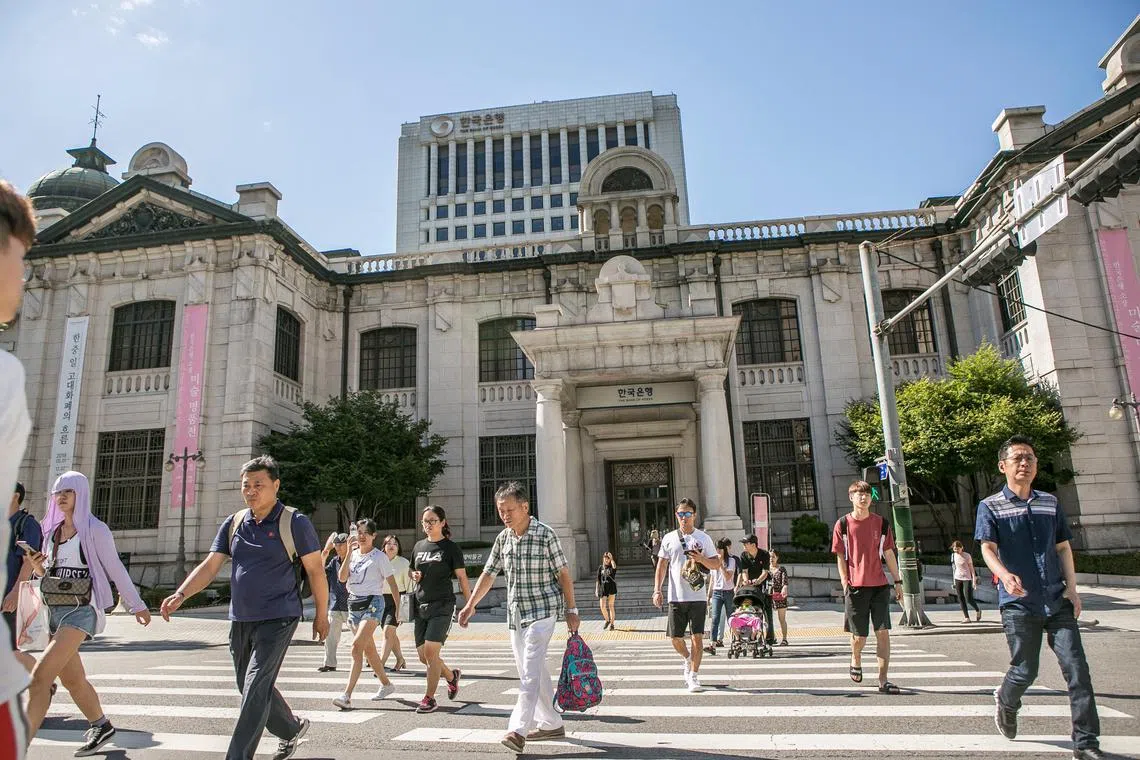Bank of Korea warns of economic hit if property slump lasts
Sign up now: Get ST's newsletters delivered to your inbox

The Bank of Korea pointed to worsening delinquencies among developers as the latest signal of continuing woes in the credit market.
PHOTO: BLOOMBERG
Follow topic:
SEOUL - The Bank of Korea (BOK) warned on March 28 that a further slump in the real estate sector would undermine broader economic activity, as it pointed to worsening delinquencies among developers in the latest signal of continuing woes in the credit market.
The rising delinquency rate underscores more risks associated with project finance projects, keeping alive concerns that they may spread to other developers, the central bank said in a regular report on the financial sector.
The overall financial system appears stable in general, the BOK said.
Project finance refers to a popular type of loan to developers in South Korea secured against expected future profits.
“If the recovery of the real estate and construction industry is delayed, project finance business failures may also affect the real economy,” the BOK said.
For now, the bank considers it unlikely for such failures will widen and said that a “swift response” by the authorities would reduce the impact of such events. The BOK did not say specify what that response should be.
While agreeing that a property crisis is a low-probability event, Bloomberg Economics projects that a 10 per cent fall in house prices for two consecutive years would cause South Korea’s economic growth to slow to 0.7 per cent in 2024 and 0.8 per cent in 2025, from current forecasts of 2.2 per cent and 2 per cent.
In a “Crash Landing With Stimulus” scenario in which policymakers step in aggressively with sharp interest rate cuts and ramped-up spending, the model expects those growth rates would be less gloomy at 1.2 per cent and 1.4 per cent.
Housing prices are a key barometer of risks for developers. Property prices began to edge down again from December in a reversal from five straight months of gains. Unsold homes have also risen for two months in a row, signalling weakening appetite for residential property, according to data from the bank.
Housing prices remain under pressure as the BOK keeps its key interest rate at 3.5 per cent, a level it characterises as restrictive to fight inflation.
The central bank said last week that an early pivot would reignite debt appetite among households and hurt public confidence in policy.
Since the BOK began to tighten in 2021, a series of high-profile credit events have kept policymakers on edge, including a 2022 default by the developer of a Legoland Korea theme park and, more recently, liquidity stress at Taeyoung Engineering and Construction.
Last week, the Financial Supervisory Service urged lenders to expand financial support for troubled builders, highlighting a pickup in the number of project finance sites experiencing “significantly worsening profitability.”
Credit-market stress is among the top concerns for President Yoon Suk-yeol’s government ahead of parliamentary elections in April.
While the overall financial system remains stable, the BOK called for close monitoring of risks and continued efforts to restructure development projects that may fail to repay debt. BLOOMBERG

